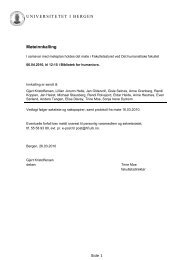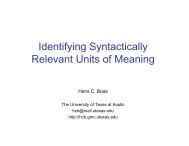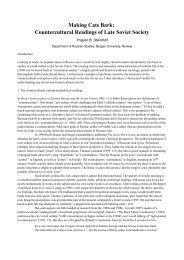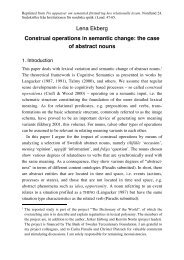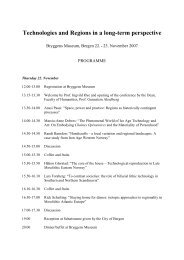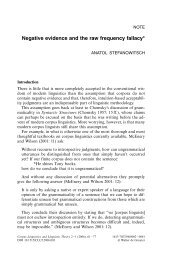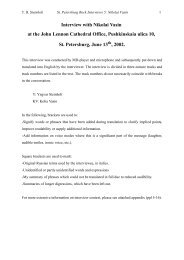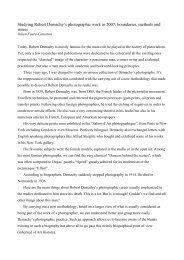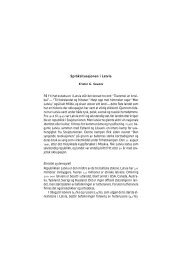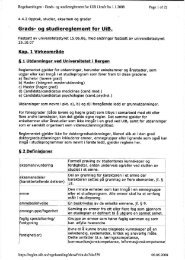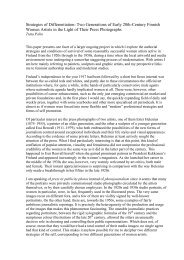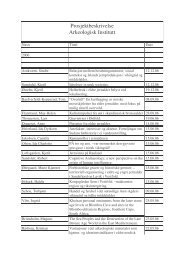THE BOOK OF POEMS IN TWENTIETH-CENTURY ... - TopReferat
THE BOOK OF POEMS IN TWENTIETH-CENTURY ... - TopReferat
THE BOOK OF POEMS IN TWENTIETH-CENTURY ... - TopReferat
Create successful ePaper yourself
Turn your PDF publications into a flip-book with our unique Google optimized e-Paper software.
ноября," but the historical context of "2-ого ноября" no longer penetrates "Путем<br />
зерна." The title poem relies exclusively on its dating, 1917, for its connection to the<br />
revolution.<br />
This diminishing of the historical relevance of "Путем зерна" grants other<br />
aspects of the poem more prominence. Bethea has noted the poem's metapoetic nature:<br />
the introduction of Khodasevich as a sower-poet following in the tradition of his poetic<br />
ancestors. The first words of the poem contain a pun on his name: Проходит сеятель. 36<br />
He follows the paths taken by his father and grandfather (his poetic forebears) along even<br />
furrows. As Khodasevich would have been well aware, the Latin word versus means<br />
both "furrow" and "line of verse." 37<br />
Thus, Khodasevich opens the final edition of his<br />
book by announcing his arrival as a mature poet.<br />
This poem opens not only the final edition of Путем зерна, but also<br />
Khodasevich's entire Собрание стихов from which he deliberately leaves out his first<br />
two books, Молодость and Счастливый домик. Thus he introduces "Путем зерна" as<br />
the first poem of his "first" book of poetry—taking the place initially held by "В моей<br />
стране," the first poem of Молодость. "Путем зерна" provides a clear contrast to, even<br />
polemic with "В моей стране," a poem about the futility of sowing, the barrenness of his<br />
country's dead land:<br />
Мои поля сыпучий пепел кроет.<br />
В моей стране печален страдный день.<br />
Сухую пыль соха со скрипом роет,<br />
И ноги жжет затянутый ремень.<br />
36 Sergei Davydov first alerted Bethea to this pun. Bethea, Khodasevich, 139, n.66.<br />
37 Bethea, Khodasevich, 138-139. In addition to the metapoetic qualities of the poem, Bethea also<br />
acknowledges its function "as a frame for the events of the Revolution" (139), but, as I am trying to argue,<br />
the final edition of the book, separated by a decade from the events of the revolution, seems less tied to<br />
biography and history than its earlier incarnations.<br />
20



